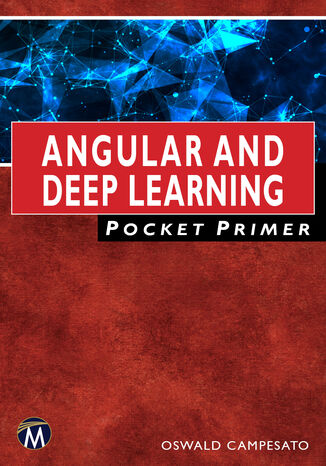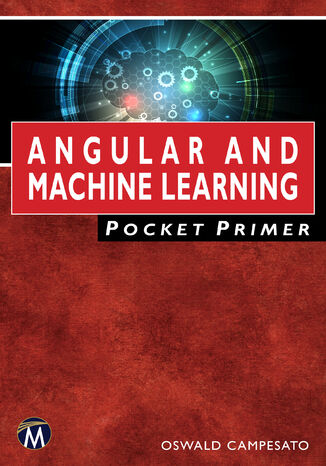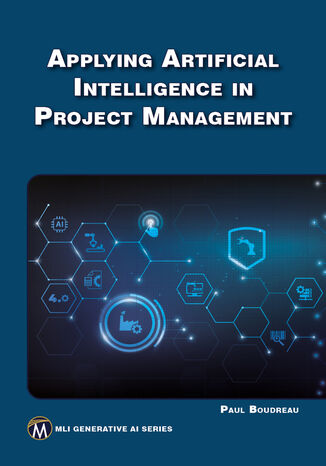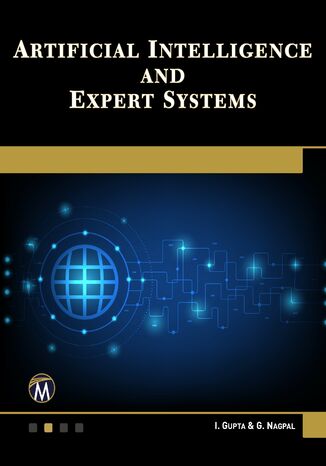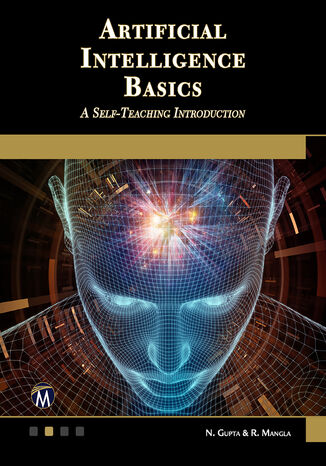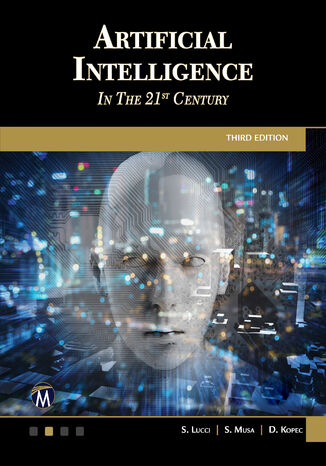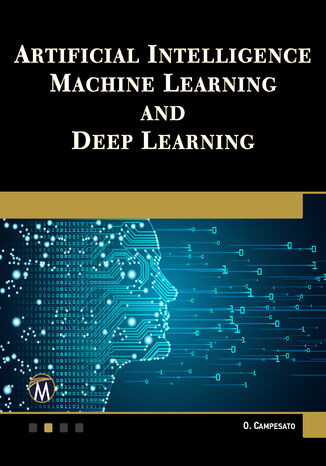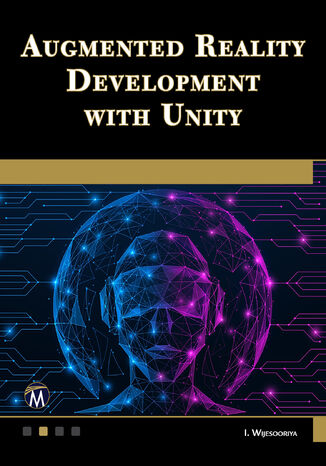Kategorie
-
- Bitcoin
- Bizneswoman
- Coaching
- Controlling
- E-biznes
- Ekonomia
- Finanse
- Giełda i inwestycje
- Kompetencje osobiste
- Komputer w biurze
- Komunikacja i negocjacje
- Mała firma
- Marketing
- Motywacja
- Multimedialne szkolenia
- Nieruchomości
- Perswazja i NLP
- Podatki
- Polityka społeczna
- Poradniki
- Prezentacje
- Przywództwo
- Public Relation
- Raporty, analizy
- Sekret
- Social Media
- Sprzedaż
- Start-up
- Twoja kariera
- Zarządzanie
- Zarządzanie projektami
- Zasoby ludzkie (HR)
-
- Architektura i wnętrza
- BHP
- Biznes i Ekonomia
- Dom i ogród
- E-Biznes
- Ekonomia i finanse
- Ezoteryka
- Finanse
- Finanse osobiste
- Firma
- Fotografia
- Informatyka
- Kadry i płace
- Kobieca
- Komputery, Excel
- Księgowość
- Kultura i literatura
- Naukowe i akademickie
- Ochrona środowiska
- Opiniotwórcze
- Oświata
- Podatki
- Podróże
- Psychologia
- Religia
- Rolnictwo
- Rynek książki i prasy
- Transport i Spedycja
- Zdrowie i uroda
-
- Aplikacje biurowe
- Bazy danych
- Bioinformatyka
- Biznes IT
- CAD/CAM
- Digital Lifestyle
- DTP
- Elektronika
- Fotografia cyfrowa
- Grafika komputerowa
- Gry
- Hacking
- Hardware
- IT w ekonomii
- Pakiety naukowe
- Podręczniki szkolne
- Podstawy komputera
- Programowanie
- Programowanie mobilne
- Serwery internetowe
- Sieci komputerowe
- Start-up
- Systemy operacyjne
- Sztuczna inteligencja
- Technologia dla dzieci
- Webmasterstwo
-
- Antologie
- Ballada
- Biografie i autobiografie
- Dla dorosłych
- Dramat
- Dzienniki, pamiętniki, listy
- Epos, epopeja
- Esej
- Fantastyka i science-fiction
- Felietony
- Fikcja
- Humor, satyra
- Inne
- Klasyczna
- Kryminał
- Literatura faktu
- Literatura piękna
- Mity i legendy
- Nobliści
- Nowele
- Obyczajowa
- Okultyzm i magia
- Opowiadania
- Pamiętniki
- Podróże
- Poemat
- Poezja
- Polityka
- Popularnonaukowa
- Powieść
- Powieść historyczna
- Proza
- Przygodowa
- Publicystyka
- Reportaż
- Romans i literatura obyczajowa
- Sensacja
- Thriller, Horror
- Wywiady i wspomnienia
-
- Archeologia
- Bibliotekoznawstwo
- Filmoznawstwo
- Filologia
- Filologia polska
- Filozofia
- Finanse i bankowość
- Geografia
- Gospodarka
- Handel. Gospodarka światowa
- Historia i archeologia
- Historia sztuki i architektury
- Kulturoznawstwo
- Lingwistyka
- Literaturoznawstwo
- Logistyka
- Matematyka
- Medycyna
- Nauki humanistyczne
- Pedagogika
- Pomoce naukowe
- Popularnonaukowa
- Pozostałe
- Psychologia
- Socjologia
- Teatrologia
- Teologia
- Teorie i nauki ekonomiczne
- Transport i spedycja
- Wychowanie fizyczne
- Zarządzanie i marketing
-
- BHP
- Historia
- Kodeks drogowy. Prawo jazdy
- Nauki prawne
- Ochrona zdrowia
- Ogólne, kompendium wiedzy
- Podręczniki akademickie
- Pozostałe
- Prawo budowlane i lokalowe
- Prawo cywilne
- Prawo finansowe
- Prawo gospodarcze
- Prawo gospodarcze i handlowe
- Prawo karne
- Prawo karne. Przestępstwa karne. Kryminologia
- Prawo międzynarodowe
- Prawo międzynarodowe i zagraniczne
- Prawo ochrony zdrowia
- Prawo oświatowe
- Prawo podatkowe
- Prawo pracy i ubezpieczeń społecznych
- Prawo publiczne, konstytucyjne i administracyjne
- Prawo rodzinne i opiekuńcze
- Prawo rolne
- Prawo socjalne, prawo pracy
- Prawo Unii Europejskiej
- Przemysł
- Rolne i ochrona środowiska
- Słowniki i encyklopedie
- Zamówienia publiczne
- Zarządzanie
-
- Afryka
- Albumy
- Ameryka Południowa
- Ameryka Środkowa i Północna
- Australia, Nowa Zelandia, Oceania
- Austria
- Azja
- Bałkany
- Bliski Wschód
- Bułgaria
- Chiny
- Chorwacja
- Czechy
- Dania
- Egipt
- Estonia
- Europa
- Francja
- Góry
- Grecja
- Hiszpania
- Holandia
- Islandia
- Litwa
- Łotwa
- Mapy, Plany miast, Atlasy
- Miniprzewodniki
- Niemcy
- Norwegia
- Podróże aktywne
- Polska
- Portugalia
- Pozostałe
- Przewodniki po hotelach i restauracjach
- Rosja
- Rumunia
- Słowacja
- Słowenia
- Szwajcaria
- Szwecja
- Świat
- Turcja
- Ukraina
- Węgry
- Wielka Brytania
- Włochy
-
- Filozofie życiowe
- Kompetencje psychospołeczne
- Komunikacja międzyludzka
- Mindfulness
- Ogólne
- Perswazja i NLP
- Psychologia akademicka
- Psychologia duszy i umysłu
- Psychologia pracy
- Relacje i związki
- Rodzicielstwo i psychologia dziecka
- Rozwiązywanie problemów
- Rozwój intelektualny
- Sekret
- Seksualność
- Uwodzenie
- Wygląd i wizerunek
- Życiowe filozofie
-
- Bitcoin
- Bizneswoman
- Coaching
- Controlling
- E-biznes
- Ekonomia
- Finanse
- Giełda i inwestycje
- Kompetencje osobiste
- Komunikacja i negocjacje
- Mała firma
- Marketing
- Motywacja
- Nieruchomości
- Perswazja i NLP
- Podatki
- Polityka społeczna
- Poradniki
- Prezentacje
- Przywództwo
- Public Relation
- Sekret
- Social Media
- Sprzedaż
- Start-up
- Twoja kariera
- Zarządzanie
- Zarządzanie projektami
- Zasoby ludzkie (HR)
-
- Antologie
- Ballada
- Biografie i autobiografie
- Dla dorosłych
- Dramat
- Dzienniki, pamiętniki, listy
- Epos, epopeja
- Esej
- Fantastyka i science-fiction
- Felietony
- Fikcja
- Humor, satyra
- Inne
- Klasyczna
- Kryminał
- Literatura faktu
- Literatura piękna
- Mity i legendy
- Nobliści
- Nowele
- Obyczajowa
- Okultyzm i magia
- Opowiadania
- Pamiętniki
- Podróże
- Poezja
- Polityka
- Popularnonaukowa
- Powieść
- Powieść historyczna
- Proza
- Przygodowa
- Publicystyka
- Reportaż
- Romans i literatura obyczajowa
- Sensacja
- Thriller, Horror
- Wywiady i wspomnienia
-
- Filozofie życiowe
- Komunikacja międzyludzka
- Mindfulness
- Ogólne
- Perswazja i NLP
- Psychologia akademicka
- Psychologia duszy i umysłu
- Psychologia pracy
- Relacje i związki
- Rodzicielstwo i psychologia dziecka
- Rozwiązywanie problemów
- Rozwój intelektualny
- Sekret
- Seksualność
- Uwodzenie
- Wygląd i wizerunek
- Życiowe filozofie
Mercury Learning and Information, Oswald Campesato
As part of the Pocket Primer series, this book introduces basic deep learning concepts and integrates them into Angular 10 applications. It offers a fast-paced introduction to deep learning features and popular classifiers. Covering Angular 10 functionality, deep learning concepts, and key classification algorithms, the book includes code samples and figures. Topics such as TensorFlow and Keras are also explored.The book begins with an introduction to AI and its applications, followed by state space search and heuristic search strategies. You will delve into expert systems, their development life cycle, knowledge acquisition, and representation. These topics lead to a deeper understanding of neural networks, the learning process, and fuzzy logic systems, ensuring a comprehensive grasp of AI and deep learning principles.Understanding these concepts is essential for developing sophisticated AI applications and enhancing Angular 10 projects. This book transitions you from a novice to a proficient developer, equipped with practical skills and knowledge. Advanced topics like fuzzy expert systems and logic programming are covered, culminating in advanced Prolog. Companion files with source code and color figures enhance the learning experience, making this book an invaluable resource for integrating deep learning with Angular 10.
Mercury Learning and Information, Oswald Campesato
As part of the best-selling *Pocket Primer* series, this book introduces readers to basic machine learning concepts and integrates them into Angular applications. It offers a fast-paced introduction to essential machine learning features and an overview of popular classifiers. Covering Angular functionality, basic machine learning concepts, and key classification algorithms, the book includes numerous code samples and figures. Topics such as TensorFlow and Keras are also explored.The book begins with a quick introduction to Angular, followed by UI controls, user input, and forms and services. As you progress, you will delve into machine learning, working with classifiers, and integrating TensorFlow.js with Angular. These foundational topics ensure a comprehensive grasp of both Angular and machine learning principles, equipping you with practical skills for developing sophisticated applications.Understanding these concepts is crucial for enhancing Angular projects with machine learning capabilities. This book transitions you from a novice to a proficient developer, equipped with the knowledge and tools needed to create advanced applications. Companion files with source code and color figures enhance the learning experience, making this book an invaluable resource for integrating machine learning with Angular.
Mercury Learning and Information, Paul Boudreau
Artificial intelligence is reshaping the way projects are managed, offering unprecedented opportunities to improve efficiency, accuracy, and outcomes. This course begins with an introduction to AI’s role in project management, exploring how machine learning, natural language processing, and predictive algorithms can transform traditional approaches. You’ll learn about the key components of AI-driven projects and how to develop a strong business case for adopting these innovations.As you progress, the course delves into practical applications of AI in automating project tasks, analyzing data, and predicting results. Participants will gain hands-on experience with tools that leverage machine learning to forecast project success, improve productivity, and resolve potential failures. Additionally, you’ll discover how generative AI and large language models can enhance communication, planning, and decision-making throughout the project lifecycle.Finally, the course examines the broader implications of integrating AI into project management. You’ll explore strategies for acquiring AI solutions, implementing them within teams, and navigating the ethical challenges they present. By the end of the course, participants will have a clear understanding of how to leverage AI to optimize projects and stay competitive in a rapidly evolving technological landscape.
Artificial Intelligence and Expert Systems. Techniques and Applications for Problem Solving
Mercury Learning and Information, I. Gupta, G. Nagpal
This book covers current AI applications and techniques for solving problems and accomplishing tasks. It introduces branches of AI such as formal logic, reasoning, knowledge engineering, expert systems, neural networks, and fuzzy logic. It emphasizes expert systems, with sections on state space search, knowledge engineering, neural networks, fuzzy logic, and Prolog.It begins with an introduction to AI and its applications, setting the stage for foundational concepts. Readers are guided through state space search and heuristic search strategies, crucial for problem-solving in AI. The focus shifts to expert systems, covering their development life cycle, knowledge acquisition, and representation, providing a deep dive into emulating human decision-making.Later chapters cover neural networks and the learning process, essential for creating adaptive systems. Sections on fuzzy logic and fuzzy systems introduce methods for handling uncertainty in AI. Final chapters on programming in logic and advanced Prolog offer practical techniques for AI solutions. This approach equips readers with the skills to apply AI in various domains, enhancing their problem-solving abilities and understanding of intelligent systems.
Artificial Intelligence Basics. A Self-Teaching Introduction
Mercury Learning and Information, N. Gupta, R. Mangla
This book is designed as a self-teaching introduction to the fundamental concepts of artificial intelligence (AI). It begins with the history of AI, the Turing test, and early applications, providing a strong foundation. Later chapters cover the basics of searching, game playing, and knowledge representation. The journey continues with detailed explorations of expert systems and machine learning, equipping readers with essential AI techniques.As the course progresses, you will delve into separate programming chapters on Prolog and Python, learning how to implement AI concepts in these languages. These chapters offer practical coding experience, enhancing your understanding of AI programming. The book culminates with a comprehensive chapter on AI machines and robotics, showcasing numerous modern applications and providing a glimpse into the future of AI technology.Understanding these AI concepts is crucial as they form the basis of many modern technologies and applications. This book ensures a smooth transition from a beginner to a proficient AI practitioner, equipped with both theoretical knowledge and practical skills. By the end of the book, you will have a thorough understanding of AI's history, core principles, and practical implementations, ready to apply this knowledge to real-world problems and projects.
Artificial Intelligence in the 21st Century. The Future of Technology and Human Innovation
Mercury Learning and Information, Stephen Lucci, Sarhan M. Musa, Danny Kopec
This third edition provides a comprehensive, accessible presentation of AI, including examples, applications, full-color images, and human interest boxes. New chapters on deep learning, AI security, and AI programming keep the content cutting-edge. Topics like neural networks, genetic algorithms, natural language processing, planning, and complex board games are covered.The course starts with an AI overview, moving through uninformed search, intelligent search methods, and game-based strategies. It delves into logic in AI, knowledge representation, production systems, uncertainty in AI, and expert systems. Middle chapters cover machine learning, neural networks, and deep learning. It continues with nature-inspired search methods, natural language processing, and automated planning, ending with robotics and advanced computer games.These AI concepts are crucial for developing sophisticated AI applications. This book transitions you from novice to proficient AI practitioner, equipped with practical skills and comprehensive knowledge. Companion files with resources, simulations, and figures enhance learning. By the end, you'll understand AI principles and applications, ready to tackle real-world challenges.
Mercury Learning and Information, Oswald Campesato
This book introduces AI, then explores machine learning, deep learning, natural language processing (NLP), and reinforcement learning. Readers learn about classifiers like logistic regression, k-NN, decision trees, random forests, and SVMs. It delves into deep learning architectures such as CNNs, RNNs, LSTMs, and autoencoders, with Keras-based code samples supplementing the theory.Starting with a foundational AI overview, the course progresses into machine learning, explaining classifiers and their applications. It continues with deep learning, focusing on architectures like CNNs and RNNs. Advanced topics include LSTMs and autoencoders, essential for modern AI. The book also covers NLP and reinforcement learning, emphasizing their importance.Understanding these concepts is vital for developing advanced AI systems. This book transitions you from beginner to proficient AI practitioner, combining theoretical knowledge and practical skills. Appendices on Keras, TensorFlow 2, and Pandas enrich the learning experience. By the end, readers will understand AI principles and be ready to apply them in real-world scenarios.
Mercury Learning and Information, Indika Wijesooriya
This book provides a comprehensive guide to developing augmented reality applications. Starting with an introduction to AR concepts, it explores key tools and platforms, emphasizing Unity as a core development tool. Readers will gain hands-on experience creating marker-based and marker-less AR apps using Vuforia, ARKit, and ARCore.The book takes a practical approach, covering the creation of custom components, C# programming for Unity, and building mobile AR apps. Advanced topics include world-scale AR with Niantic Lightship and optimization strategies for AR app performance. Each chapter builds skills progressively, ensuring a thorough understanding of the subject.By the end, readers will have the confidence and skills to design and develop innovative AR applications, understanding the best practices and challenges of AR app development.

